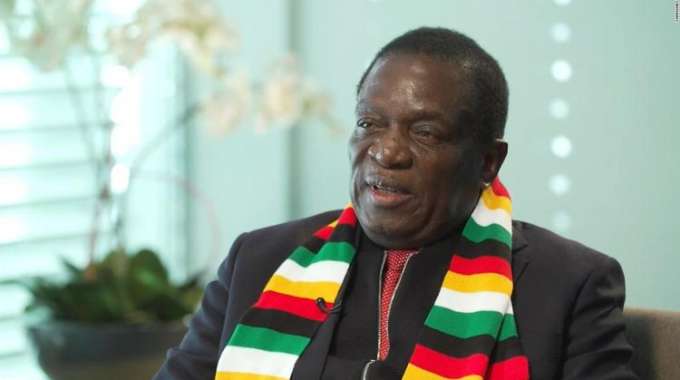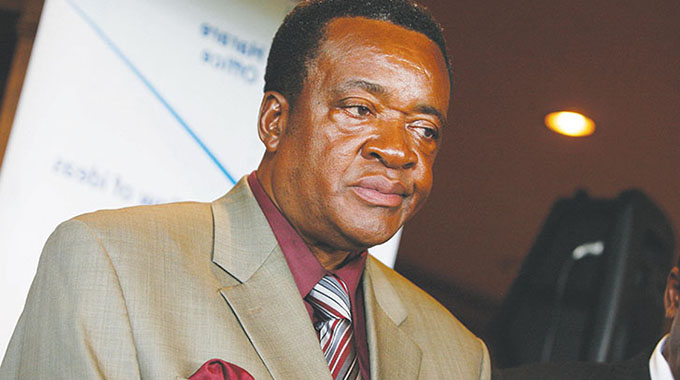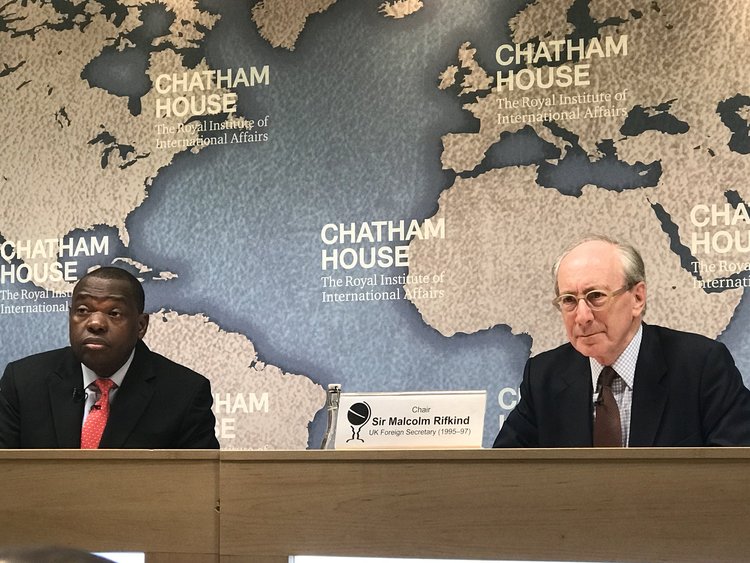Zimbabwe looks forward into the future

Gibson Nyikadzino Correspondent
Today, the world is overwhelmed by troubles pressing it from all sides. World powers are putting significantly little or no effort to calm the devastating consequences of ravaging wars that have detached the umbilical cord of many people from their countries.
The Middle East has become a raging graveyard for many dying in Syria, Yemen, Afghanistan, along with the unresolved Gaza-Israeli conflict pouring loads of pain on people whose situations are, sadly, harder to escape.
The words disaster and catastrophe fail to describe the turmoil running in the world. However, the contemporary battles are neither military nor physical, but economic. Trade wars!
The world’s leading economies, the USA and China, have sanctioned each other by whipping hurtful trade tariffs based on accusations that either country is engaging in “unfair trade practices”.
Last year in November, on President Trump’s second day of his visit to Beijing as part of his 12-day tour of east Asia, he struck a far softer tone on trade between the two economic super powers.
“Trade between China and the United States has not been, over the last many, many years, a very fair one for us.
“Right now, unfortunately, it is a very one-sided and unfair (relationship). But I don’t blame China. After all, who can blame a country for taking advantage of another country for the benefit of its own citizens?
“I give China great credit,” said Trump while addressing business leaders.
Early last month, President Trump took to Twitter: “When a country (USA) is losing many billions of dollars on trade with virtually every country it does business with, trade wars are good and easy to win. Example, when we are down $100 billion with a certain country and they get cute, don’t trade anymore – we win big. It’s easy!”
American and European economic analysts unpacking the Twitter message collectively agreed that the message was directed at China.
Trade tension between the US and China has escalated rapidly.
The US is imposing the trade tariffs on China on allegations that the latter “routinely forces American companies to share intellectual property with Chinese partners in return for access to Chinese markets or simply steals US technology.”
By 2025, China has said it intends to be the global leader in high-tech and industrial sectors.
In turn, China has slapped 25 percent tariffs on 106 American products that were worth about $50 billion in 2017, strategically the same value of Chinese imports affected by the US tariffs.
Now, Zimbabwe’s new leadership under President Mnangagwa all has these wars in its face.
The new dispensation has neither renounced the country’s 2003 Look East Policy, nor has it pursued a path to further isolation by repeating destructive paths of the previous administration.
The leadership is willingly to engage all from either the East or West on a win-win basis that value the respect in trade, democracy, upholding human rights and protection of foreign investments.
President Mnangagwa has promised to sweep away the dark past of the previous regime with fundamental reforms at home and reconciliation abroad.
On his inauguration, President Mnangagwa said; “We ask those who have punished us in the past to reconsider,” adding “all foreign investment will be safe in Zimbabwe. We dare not squander the moment.”
The country has resolved to rejoin the Commonwealth club, to invite Western governments to observe the forthcoming elections and to embrace all willing to come to Zimbabwe.
While trade wars between China and the US might point that the world is divided on a bi-polar setting, Zimbabwe is engaging both.
As the country seeks to resuscitate its economy, the “Zimbabwe is open for business” mantra is for neither those in the East or West, the mantra does not segregate on power blocs.
Just like Ghana’s founding President Kwame Nkrumah said at the peak of the Cold War: “We face neither East nor West; We face forward.”
Likewise, Zimbabwe is looking forward into the future. The only narrative to achieve all, both short-and long-terms aspirations of Zimbabweans through to Vision 2030, ICT development and poverty eradication all rest on looking forward into the future.
As Thomas Sankara said: “We must dare to invent the future.”








Comments